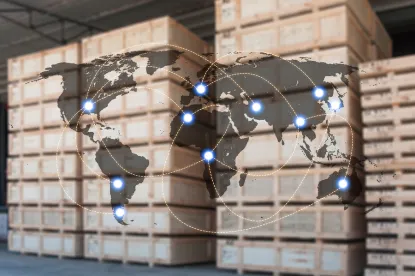Parties to the Basel Convention have adopted amendments that will dramatically expand the Convention’s international controls and trade bans applicable to plastic wastes shipped across borders for recycling. The amendments will be legally binding on the 187 parties to the agreement and will have a lasting impact on the global circular economy for plastics. As a non-party to the Convention, the United States will be uniquely and adversely impacted by the new restrictions.
Driven by concerns over the crisis in marine plastic litter, the fourteenth conference of the parties (COP-14) met last week and adopted a historic package on plastic wastes, including:
-
An amendment to Annex II of the Convention that will, in effect, bring most plastic wastes under the control of the Convention, unless certain narrow exceptions apply.
-
A mandate for an expert working group to consider the need to expand the universe of plastic wastes classified as hazardous.
-
The launch of a "partnership on plastic wastes" that will be open to parties, non-parties, and observers, including industry observers.
-
A mandate to update existing Technical Guidelines for the environmentally sound management of wastes that will inform national and international management and recycling practices, and could influence the acceptability of chemical recycling for plastics overseas.
Taken together, the actions represent the most significant expansion of the Convention in its thirty-year history.
Basel Convention
The Basel Convention on the Control of Transboundary Movements of Hazardous Wastes and Their Disposal (Basel Convention) is a global treaty governing the classification and cross-border movement of “hazardous” and “other wastes.” The Convention informs national waste legislation worldwide. Parties to the Basel Convention have agreed to enact national measures to implement the Convention’s prior notice and consent regime for transboundary shipments, along with obligations for environmentally sound management, documentation and financial assurances related to cross-border movements of covered wastes. The Convention also includes several trade bans, including a party-to-nonparty ban on trade in covered wastes. For example, Parties to the Convention are obligated to prohibit trade in covered wastes with the U.S. (a non-party) absent a so-called “Article 11 agreement.”
Annex Amendments
In June 2018, Norway proposed several amendments to the Convention addressing plastics for consideration at the next COP. At COP-14 in May 2019, the Parties adopted a revised version of that proposal that will enter into force on January 1, 2021, and will have a significant impact on the global trade in plastic wastes – valued at over $5 billion per year. By likely raising costs on the transboundary movement of plastics for recycling (and banning trade flows from the United States), the amendments could affect the ability of many companies to fulfill ambitious circular economy commitments, which rely on ready access to increasing amounts recycled plastics for use in new products. The amendment could also pose near-term challenges for countries that lack adequate national recycling infrastructure for properly managing plastic wastes.
With the exception of certain limited waste streams (the precise scope of which remains to be clarified), most plastic waste streams will now be presumed to be controlled as Annex II “Other Wastes.” Under the Basel Convention, “Other Wastes” are subject to full Basel Convention control procedures, essentially identical to the controls applicable to hazardous wastes. These controls include prior informed consent and a ban on trade in waste with non-parties. The amendments will significantly affect trade in Annex II-listed plastics between the United States and our trading partners, particularly those countries that are not members of the OECD. These bilateral trade flows (flowing both directions) are substantial with countries in Latin America such as Brazil and Argentina.
Waste streams of certain plastics can still move under Annex IX as presumptively non-hazardous. Specifically, there will be a limited exception to the new controls under Annex II and IX for:
-
Certain “one polymer” streams of certain categories of plastics:
-
Non-halogenated polymers (with an illustrative but not exclusive list of polymers identified).
-
Resins and other thermoset plastics (with an illustrative but not exclusive list of resins identified).
-
Fluoropolymers (with a short exhaustive list of resins identified).
-
-
Mixed waste fractions of clean polyethylene, polypropylene, and PET plastic, provided that they are destined for separate recycling streams in the destination country, with accompanying documentation to prove as much, and almost free from contamination and other types of waste.
It is not clear how the presence of additives, which are standard in almost all plastics (e.g., colorants and plasticizers), or the deletion of the phrase "copolymers" from the chapeau in the current Convention listing for presumptively nonhazardous plastics B3010, affects the practical implementation or intended scope of the reference to “one polymer.” The reference in the text to wastes containing “one polymer” seemed to be used as shorthand for the idea of single-stream, presorted & cleaned plastic fractions (as opposed to bales of mixed plastics), rather than an effort to truly limit the scope of B3011 to “single polymer” materials. But, because the amendment was negotiated on a very compressed timescale, with extremely limited technical input, there are many ambiguities in the text that will need to be clarified. There will be further work to prepare updated technical guidelines where some of these issues could be clarified (or complicated further).
During the negotiations, several parties and observers noted the rushed approach and limited opportunity for careful technical review, the lack of technical justification or explanation for many of the decisions taken, and the resulting likelihood of inadvertent and unforeseen consequences. Those consequences might not only be economic in nature but could also have the unintended consequence of exacerbating the marine litter challenge in some countries.
The parties also expanded the mandate of an existing expert working group that is reviewing and proposing changes to the Convention Annexes. Specifically, the expert working group reviewing Annex I, III and IV and related aspects of Annex IX will consider whether any additional constituents should be listed in Annex I or adjustments made to Annex III hazardous characteristics in relation to the classification of certain plastic wastes as “hazardous” under the Convention.
Partnership on Plastic Wastes
COP-14 also established a partnership on plastic waste and adopted terms of reference for the partnership, including a draft work plan. The goals of the partnership include improving and promoting environmentally sound management of plastic waste and preventing and minimizing its generation so as to, among other things, reduce significantly and in the long-term eliminate the discharge of plastic waste and microplastics into the environment. The planned activities of the partnership include:
- Undertaking pilot projects and capacity-building activities.
- Analyzing the barriers, solutions, lessons learned, and best practices for the prevention, minimization, and environmentally sound management and controlling of transboundary movement of plastic waste.
- Exploring options for increasing the durability, reusability, repairability, and recyclability of plastics and objects constructed from or containing plastics.
Other Decisions on Plastic Waste-Related Actions
COP-14 also adopted a package of decisions on plastic-related waste. The decision emphasizes the role the Basel Convention can play in addressing plastic waste and:
-
Stresses the importance of cooperation and coordination with other international organizations and activities through existing mechanisms, particularly the United Nations Environment Programme.
-
Calls on Parties to make further efforts to prevent and minimize the generation of plastic waste and to promote the environmentally sound and efficient management of plastic waste.
-
Encourages Parties and others to set time-bound goals, and adopt measures to achieve them, related to reusable and recyclable packaging and recycled content in plastic products.
-
Decides to update the Technical Guidelines for the Identification of Environmentally Sound Management of Plastic Waste and for Their Disposal and establishes a small inter-sessional working group to do so.
-
Invites Parties to submit information related to the newly adopted annex entries.
UN Environment Assembly
The Basel COP-14 followed the fourth meeting of the United Nations Environment Assembly (UNEA) (UNEA-4) in March 2019. UNEA is the governing body of the UN Environment Programme. Plastics were the primary focus at UNEA as well and also the subject to substantial disagreements. In the end, the UNEA-4 Ministerial Declaration committed to addressing “the damage to our ecosystems caused by the unsustainable use and disposal of plastic products, including by significantly reducing the manufacturing and use of single-use plastic products by 2030. . . .” This was a watered down version from a previous draft that proposed phasing out “most problematic single-use plastic products as early as 2025. . . .”
In addition, UNEA-4 adopted two plastics-related resolutions – one on single-use plastic products production and the other on marine plastic litter and microplastics. Together, those resolutions:
-
Encourage member states to take comprehensive action on single-use plastics, including through improvements in waste management and infrastructure.
-
Promote innovative approaches to solving this problem, including through extended producer responsibility and development of alternatives.
-
Call on member states and other stakeholders to build on existing instruments like the Basel Convention, the International Maritime Organization, the Regional Seas Conventions and Programmes, and the Global Partnership for Marine Litter.
-
Extend the mandate of the Ad Hoc Open-Ended Expert Group on Marine Litter and Microplastics, building on the group’s previous work assess existing activities and options for responding to this problem.
UNEA-4 evidenced the sustained global attention to plastic pollution and underscored UNEA’s role in the conversation, particularly with the extended mandate for the ad hoc expert group. At the same time, the limited progress at UNEA-4 likely contributed to the dramatic activity at Basel COP-14. Over the longer term, it remains unclear if governments will choose to address the problem of marine plastics pollution through existing multilateral agreements, such as the Basel Convention and U.N. regional seas programmes or embrace NGO calls for a new global agreement addressing plastics production, recycling, and disposal.
National Import Restrictions
These international developments follow rising tide actions by countries, particularly in Asia, to prohibit or restrict imports of waste plastics. Recent examples include:
-
China has essentially banned imports of post-consumer and post-industrial scrap plastics.
-
India has revised its hazardous waste rules to ban imports of solid plastic waste, expected to be effective August 31, 2019.
-
Vietnam will reportedly stop accepting all scrap plastic starting in 2025 and is currently working through its backlog of scrap plastic containers stuck at its ports. Vietnam had previously stopped issuing new licenses for waste imports.
-
Thailand has announced it will roll out a ban on all scrap plastic imports by 2021, according to reports.
-
Malaysia has reportedly imposed stringent controls on the import of plastic waste with a plan to ban the import of scrap plastics over the next three years.
As countries impose national bans on imports of scrap plastics, it becomes more difficult to move scrap plastic into various markets for recycling, thereby disrupting national waste collection and management schemes in the U.S. and elsewhere.
EU and Other Domestic Efforts Targeting Single-Use Plastics
In addition to restricting imports, countries are taking action on the use and production of single-use plastics domestically. There are countless efforts underway, including those listed below.
-
The European Union has published its Plastics Strategy, which includes the objective of having all plastic packaging placed on the EU market be reusable or recyclable by 2030. As part of the Plastics Strategy, the European Parliament has adopted a Single-Use Plastics Directive that includes a ban on certain single-use plastics products, measures to reduce consumption of food containers and beverage cups, extended producer responsibility schemes, collection targets for plastic bottles, design requirements for bottles, and other measures.
-
Several countries, including India, have announced commitments around eliminating single-use plastics in the coming years.
-
According to a recent UN report, 127 countries have adopted some form of legislation regulating plastic bags, and 27 countries have enacted legislation banning other specific products, materials, or production levels.
-
In the United States, New York and California have banned plastic bags, and several other localities have taken action to ban plastic bags as well.
-
The California legislature is considering two bills (SB 54 and AB 1080) that would require manufacturers and retailers of single-use packaging or products to reduce by 75% the waste generated from single-use packaging and products offered for sale or sold in the state through source reduction, recycling, or composting. They would also require manufacturers of single-use plastic packaging or products sold or distributed in California to demonstrate a recycling rate of 20% on and after January 1, 2022, increasing up to not less than 75% on and after January 1, 2030. The bills would require regulations to impose these requirements on manufacturers and retailers.
Private Sector Actions on Plastics
In response to the growing pressure on governments and companies to address marine plastic litter, a group of leading companies has banded together to form the Alliance to End Plastic Waste, committing $1.5 billion over the next five years. In addition, countless private sector consumer goods companies, including Nestle, Unilever, Coca Cola, and Danone, have made commitments to help address plastic waste.





 />i
/>i

